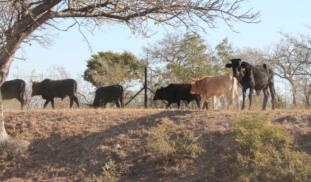Please wait...
About This Project
Researchers estimate that 60% of infection diseases are spread from animals to humans, often by arthropods. Although malaria infections are decreasing in Africa, there has been an increase in acute febrile illness (AFI). AFI includes rapid onset of fever and symptoms such as headache and chills. The South African Mnisi community, which shares 75% surrounded by wildlife reserves, has a high number of AFI cases. We plan to test the hypothesis that AFI in Mnisi is attributed to tick-borne pathogens

Browse Other Projects on Experiment
Related Projects
Do Australian bats have what it takes to survive the deadly White Nose Syndrome?
Australian bats are at risk from the deadly fungal disease White Nose Syndrome (WNS), which is expected...
Are climate change and air pollution triggering cardiovascular disease?
Ongoing global climate change and air pollution emissions pose a major threat to cardiovascular health...
Can blood lactate levels help guide treatment for birds suffering from monofilament line entanglement injuries?
Fishing line entanglement injuries are a common problem affecting over 200 different wildlife species globally...



